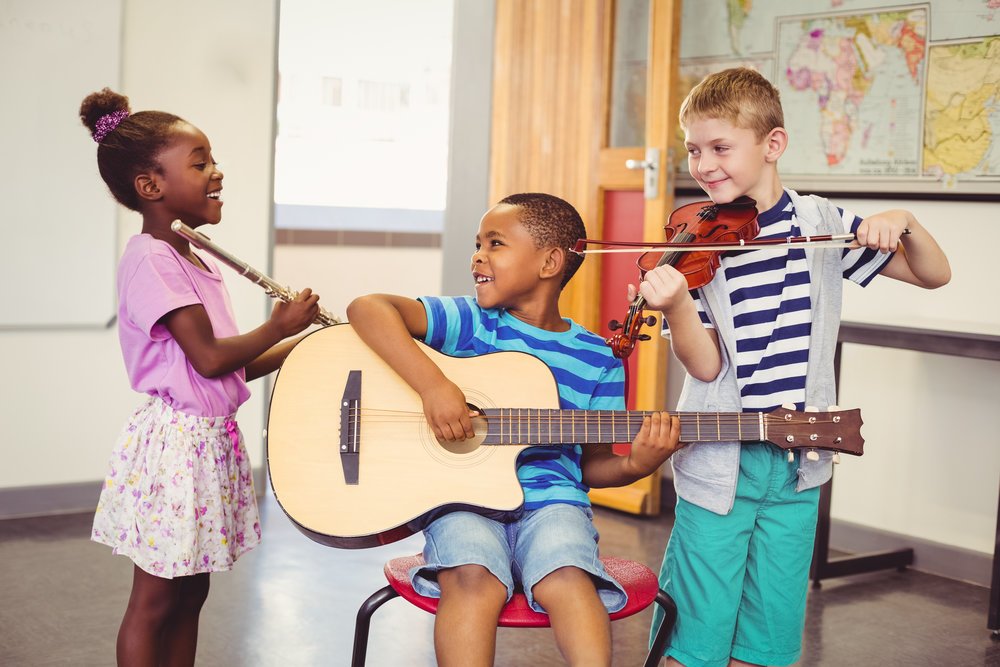Harmony in Development: The Multifaceted Benefits of Music for Kids
 From lullabies to sing-alongs, music has been an integral part of childhood for generations. Beyond its undeniable entertainment value, music plays a profound role in the development of young minds. Research consistently highlights the myriad benefits that exposure to music brings to children, impacting not only their artistic expression but also their cognitive, emotional, and social development.
From lullabies to sing-alongs, music has been an integral part of childhood for generations. Beyond its undeniable entertainment value, music plays a profound role in the development of young minds. Research consistently highlights the myriad benefits that exposure to music brings to children, impacting not only their artistic expression but also their cognitive, emotional, and social development.
- Cognitive Development:
Music has a unique power to stimulate cognitive functions in children. Learning to play an instrument, for instance, enhances memory, attention, and problem-solving skills. Studies have shown that children who engage with music from an early age often exhibit improved spatial-temporal skills, which can contribute to better mathematical and scientific understanding.
- Emotional Well-being:
Music is a universal language that resonates deeply with emotions. For kids, music can serve as a powerful tool for emotional expression and regulation. Whether through playing an instrument, singing, or simply listening, children can learn to identify and express their feelings, fostering emotional intelligence and resilience.
- Language Development:
Exposure to music has been linked to enhanced language development in children. The rhythmic patterns and melodies in music help strengthen language skills, including vocabulary and syntax. Singing songs and rhymes can also improve phonological awareness, setting a strong foundation for literacy.
- Social Skills:
Music provides a platform for collaborative activities, promoting social interaction and teamwork. Group music lessons, choirs, or ensemble performances offer children the opportunity to work together, communicate effectively, and develop a sense of responsibility within a shared goal.
- Motor Skills and Coordination:
Playing instruments or engaging in activities like dancing requires physical coordination and fine motor skills. From the precise finger movements needed to play a piano to the rhythmic coordination involved in playing percussion instruments, music contributes to the development of both gross and fine motor skills in children.
- Boost to Confidence and Self-Esteem:
Mastering an instrument or performing in front of an audience can be a transformative experience for a child. These accomplishments build a sense of achievement, fostering confidence and self-esteem. The positive feedback received during musical pursuits can have a lasting impact on a child’s overall self-worth.
- Cultural Awareness:
Exposure to a diverse range of musical genres introduces children to different cultures and traditions. This early exposure promotes cultural awareness, tolerance, and an appreciation for diversity, broadening their perspectives and nurturing a global mindset.
In the symphony of childhood development, music plays a unique and indispensable role. Beyond the joy it brings, music contributes to cognitive, emotional, and social growth in children. Whether through formal music education or casual exposure to a variety of musical genres, the benefits of incorporating music into a child’s life are vast and enduring. As parents, educators, and caregivers, let us recognize and celebrate the harmonious impact of music on the young minds shaping the future.
